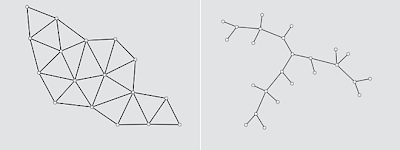Image 1
So here we are, roughly four decades later, faced with a phenomenon that plays a great role in shaping our society and dictating our daily existence. For myself personally, I have Internet access at my fingertips 24 hours a day 7 days a week, it heavily dictates my level of knowledge, information access, socializing opportunities and university study . This networked sphere I have unconsciously immersed myself in, somehow shapes every facet of my life, in one way or another. This notion is promoted by Stadler, “All human actions rely, in varying degrees, on digital information networks” (2005, p 62).
So here we are, roughly four decades later, faced with a phenomenon that plays a great role in shaping our society and dictating our daily existence. For myself personally, I have Internet access at my fingertips 24 hours a day 7 days a week, it heavily dictates my level of knowledge, information access, socializing opportunities and university study . This networked sphere I have unconsciously immersed myself in, somehow shapes every facet of my life, in one way or another. This notion is promoted by Stadler, “All human actions rely, in varying degrees, on digital information networks” (2005, p 62).
Stadler goes on to describe how the Internet is constructed through a network consisting of flows and nodes – an interdependent, dynamic relationship, subject to change, with high velocity whose existence is determined by differentiation (2005). This concept was initially difficult for me to grasp as the visual diagrams did not translate into an explanation of how the Internet phenomenon mechanically produces structured networks which spit out the right information on the right platforms at the right time! Yet upon reflection the idea of the Internet in general is a complex enough marvel to wrap ones head around. So the idea of flows and nodes, and there tendency to carry information across the globe will have to suffice at this time.
Sterling, B. (1993) 'A Short History of the Internet', The Magazine of Fantasy and Science Fiction [URL: http://sodacity.net/system/files/Bruce_Sterling_A_Short_History_of_the_Internet.pdf]
Stalder, F. (2005) 'Information Ecology'. In Open Cultures and the Nature of Networks pp. 62-66 [URL: http://felix.openflows.com/pdf/Notebook_eng.pdf]


I completely agree with your quote from Stadler! Technology has such a massive impact on everyday human life.
ReplyDeleteThe internet provides such an array of knowledge and culture that individuals become immersed in technology without even realising.
I think it's incredibly interesting/sad how we now rely on information networks and technology in our day to day life. I recently read an article where it said 70% of people surveyed checked their phone as soon as they got up. It's not like they're missing out on any incredibly important information, but i'm one of those people.
ReplyDeleteHey Gabby
ReplyDeleteLike Naomi, I like and totally agree with Stadler's quote that "All human actions rely, in varying degrees, on digital information networks. I know that as part of my life, computers and the internet has shaped the way I interact with others, learn, do work, and entertain myself.
Though I do have those days where I want to turn off all of my technology and relax without being interrupted upon.
And like you, I find it hard to grasp the size of cyberspace and all the infrastructure used to run it now and in the future - is kind of scary.